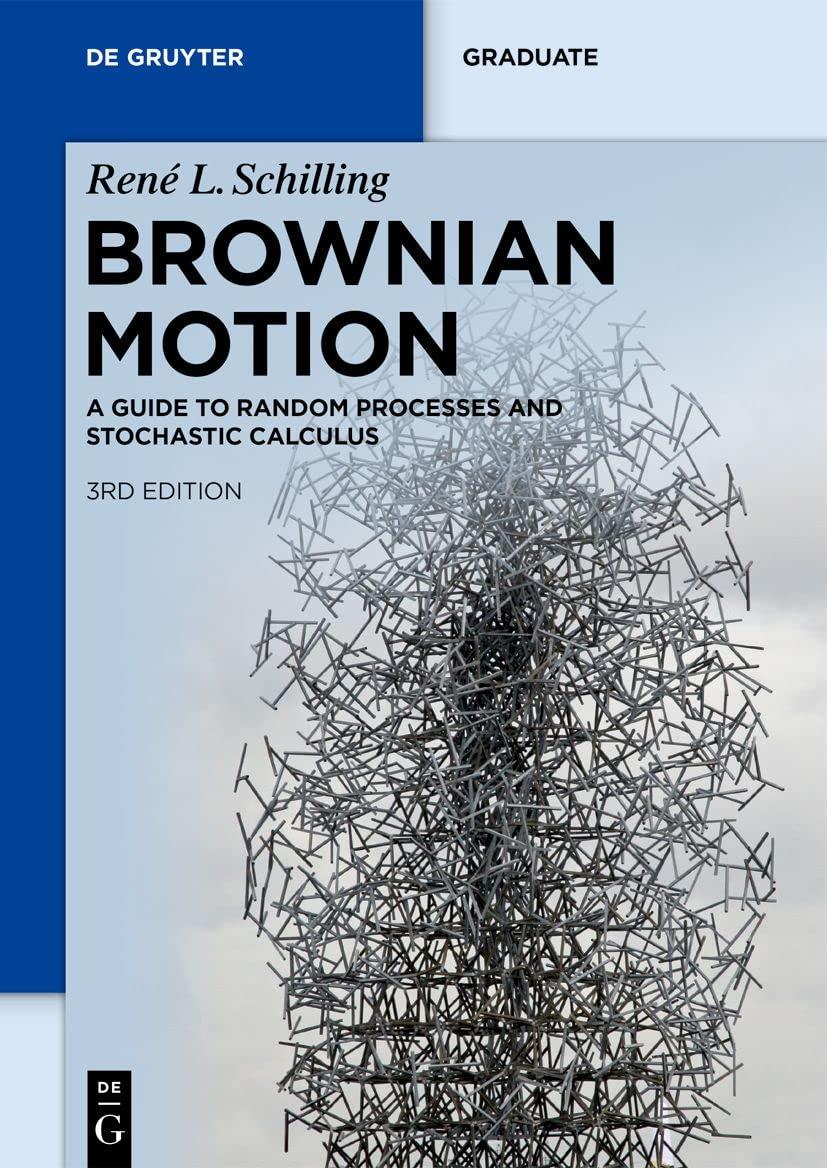Let (left(P_{t} ight)_{t geqslant 0}) be the transition semigroup of a (mathrm{BM}^{d}) and denote by (L^{p}, 1
Question:
Let \(\left(P_{t}\right)_{t \geqslant 0}\) be the transition semigroup of a \(\mathrm{BM}^{d}\) and denote by \(L^{p}, 1 \leqslant p<\infty\), the space of \(p\) th power integrable functions with respect to Lebesgue measure on \(\mathbb{R}^{d}\). Set \(u_{n}:=(-n) \vee u \wedge n\) for every \(u \in L^{p}\). Verify that
a) \(u_{n} \in \mathcal{B}_{b}\left(\mathbb{R}^{d}\right) \cap L^{p}\left(\mathbb{R}^{d}\right)\) and \(L^{p}-\lim _{n \rightarrow \infty} u_{n}=u\).
b) \(\widetilde{P}_{t} u:=\lim _{n \rightarrow \infty} P_{t} u_{n}\) extends \(P_{t}\) and gives a contraction semigroup on \(L^{p}\). Use Young's inequality for convolutions,
c) \(\widetilde{P}_{t}\) is sub-Markovian, i.e. if \(u \in L^{p}\) and \(0 \leqslant u \leqslant 1\) a.e., then \(0 \leqslant \widetilde{P}_{t} u \leqslant 1\) a. e.
d) \(\widetilde{P}_{t}\) is strongly continuous, i.e. \(\lim _{t \rightarrow 0}\left\|\widetilde{P}_{t} u-u\right\|_{L^{p}}=0\) for all \(u \in L^{p}\). For \(u \in L^{p}, y \mapsto\|u(\cdot+y)-u\|_{L^{p}}\) is continuous,
Step by Step Answer:

Brownian Motion A Guide To Random Processes And Stochastic Calculus De Gruyter Textbook
ISBN: 9783110741254
3rd Edition
Authors: René L. Schilling, Björn Böttcher





